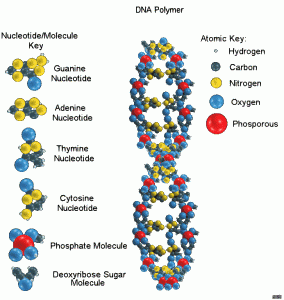Brain stem may be key to consciousness:
From MindHacks An article in this week’s Science News discusses whether the brain stem may play a more central role in consciousness than it’s usually given credit for. It focuses on children with hydranencephaly, a where the cortex fails to develop in children and instead, the space is filled with cerebral spinal fluid. Typically, affected […]
From MindHacks
 An article in this week’s Science News discusses whether the brain stem may play a more central role in consciousness than it’s usually given credit for.
An article in this week’s Science News discusses whether the brain stem may play a more central role in consciousness than it’s usually given credit for.
It focuses on children with hydranencephaly, a where the cortex fails to develop in children and instead, the space is filled with cerebral spinal fluid.
Typically, affected children survive only a few months after birth, but those that do survive seem to remarkably more conscious than you would guess based on theories that suggest the cortex is where all the action happens to support consciousness.
Swedish neuroscientist Bjorn Merker wrote an article [pdf] in February’s Behavioural and Brain Sciences journal arguing that these cases suggest we need to rethink our ideas about how the brain supports conscious thought, and perhaps, even consciousness itself.
Merker argues that the brain stem supports an elementary form of conscious thought in kids with hydranencephaly. It also contains auditory structures capable of preserving hearing in someone without a cortex. In contrast, optic nerve damage in hydranencephaly frequently impairs vision, regardless of what the brain stem does.
Self-awareness and other “higher” forms of thought may require cortical contributions. But Merker posits that “primary consciousness,” which he regards as an ability to integrate sensations from the environment with one’s immediate goals and feelings in order to guide behavior, springs from the brain stem.
If he’s right, virtually all vertebrates—which share a similar brain stem design—belong to the “primary consciousness” club. Moreover, medical definitions of brain death as a lack of cortical activity would face a serious challenge. At the very least, physicians could no longer assume that individuals with hydranencephaly don’t need pain medication or anesthesia during invasive medical procedures.
Link to Science News article ‘Consciousness in the Raw’.
pdf of BBS article ‘Consciousness without a cerebral cortex’.







